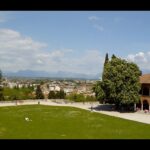The paper “FrameNet-like Annotation of Olfactory Information in Texts” authored by Sara Tonelli and Stefano Menini has been accepted for presentation as a long paper at the 5th SIGHUM Workshop on Computational Linguistics for Cultural Heritage, Social Sciences, Humanities and Literature that will be co-located with EMNLP 2021. The paper represents one of the first scientific outcomes of activities carried out within the ODEUROPA H2020 Project.
Abstract
Although olfactory references play a crucial part in our cultural memory, only few works in NLP have tried to capture them from a computational perspective. Currently, the main challenge is not much the development of technological components for olfactory information extraction, given recent advances in semantic processing and natural language understanding, but rather the lack of a theoretical framework to capture this information from a linguistic point of view, as a preliminary step towards the development of automated systems.
Therefore, in this work we present the annotation guidelines, developed with the help of history scholars and domain experts, aimed at capturing all the relevant elements involved in olfactory situations or events described in texts. These guidelines have been inspired by FrameNet annotation, but underwent some adaptations, which are detailed in this paper. Furthermore, we present a case study concerning the annotation of olfactory situations in English historical travel writings describing trips to Italy. An analysis of the most frequent role fillers show that olfactory descriptions pertain to some typical domains such as religion, food, nature, ancient past, poor sanitation, all supporting the creation of a stereotypical imagery related to Italy. On the other hand, positive feelings triggered by smells are prevalent, and contribute to framing travels to Italy as an exciting experience involving all senses.





